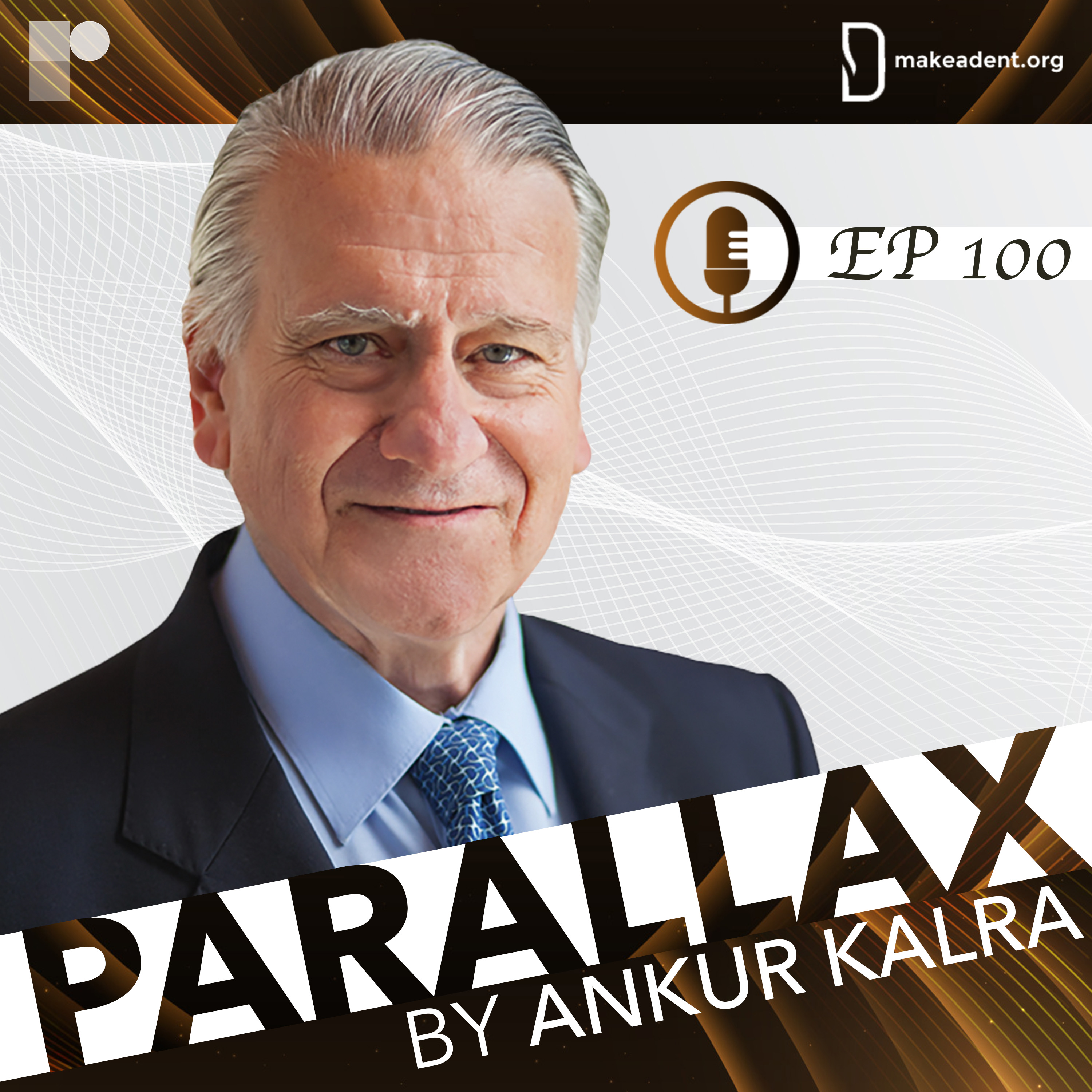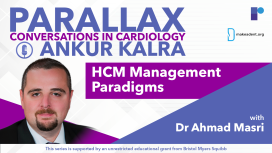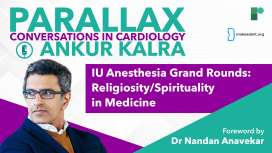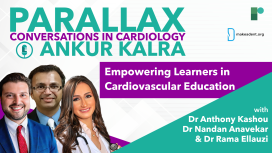
In the landmark centennial episode of Parallax, Dr Ankur Kalra welcomes a true luminary in the field of cardiology, Dr Valentin Fuster.
Dr Valentin Fuster, a renowned cardiologist, currently holds multiple roles. He serves as the Director of the Cardiovascular Institute and as the Physician-in-Chief at the Mount Sinai Medical Center in New York. Additionally, Dr Fuster is the General Director of the Centro Nacional de Investigaciones Cardiovasculares Carlos III (CNIC) in Madrid. Notably, he also holds the position of Editor-in-Chief at the Journal of the American College of Cardiology (JACC).
In this candid and rich episode, Dr Fuster delves into his upbringing in Barcelona and reflects on the influential role his family played in providing him with role models and a sense of freedom during his formative years. Dr Fuster invites us to contemplate the concepts of mentorship and trust by recounting pivotal moments from his life, revealing how these principles propelled him towards a life of fulfilment.
Dr Kalra and Dr Fuster revisit one of the central questions explored in Dr Fuster's book, "The Circle of Motivation" – how can one maintain a positive outlook and prepare for life's inevitable fluctuations? Dr Fuster shares insights into his daily routine, which aids him in reflection, tuning into his intuition, and making choices that align with his true self.
While discussing his priorities, we gain insight into Dr Fuster's projects, driven by the concern that we do not intervene early enough in the treatment of individuals. Dr Kalra and Dr Fuster engage in a discussion about Dr Fuster's thoughts on JACC and Dr Fuster outlines the key principles of leadership in various contexts, accompanied by examples from his own life. Dr Kalra seeks Dr Fuster's perspective on augmentative intelligence and the future of medicine, shedding light on what Dr Fuster believes is essential for contemporary medical education in light of the transformative impact of AI.
Finally, Dr Fuster shares three influential books that have shaped his thinking, along with a message for our listeners.
Resources:
JACC Journals’ Pathway Forward With AI Tools: The Future Is Now
https://www.jacc.org/doi/10.1016/j.jacc.2023.02.030
The Circle of Motivation
https://www.amazon.com/Circle-Motivation-Valentin-Fuster-ebook/dp/B07YLVMSKH




Tune in to discover the strategies that Dr. Kalra and Dr. Alasnag are currently employing and gain insights into how these data will shape their future decision-making in the catheterization laboratory. Don't miss this informative discussion at the forefront of interventional cardiology.

As we adapt to the changes brought about by the pandemic, Dr Singh outlines the necessary steps to foster a reality in which we can utilize these technologies to create more time for human connection.

Dr Owens is Medical Director of the Center for Inherited Cardiac Disease and Associate Professor of Medicine at the Hospital of the University of Pennsylvania.
This series is supported by an unrestricted educational grant from Bristol Myers Squibb. Please see www.camzyosrems.com for important safety information.
This content is intended for US-based physicians.

This series is supported by an unrestricted educational grant from Bristol Myers Squibb. Please see www.camzyosrems.com for important safety information.
This content is intended for US-based physicians.

This series is supported by an unrestricted educational grant from Bristol Myers Squibb. Please see www.camzyosrems.com for important safety information.
This content is intended for US-based physicians.




The charity organisation, Women as One is an agent for women and men to be part of medicine that is built on talent, rather than a privilege. Roxana and Ankur discuss the role of mentorship and family-friendly work environment in mending the broken house of cardiology. Roxana talks about the practical tools that are available for women to take the next steps in their career and achieve their goals.

Dr Kalra asks Dr Mauri about early influences and her traineeship with legendary interventionalists, the late Donald Baim and Richard Kuntz. Dr Mauri talks openly about her decision-making process and the importance of selecting your priorities and committing to them. Ankur asks Laura about her decision to go into industry. Laura shares her thoughts on medical innovations and meeting urgent needs with unique perspectives.
What is Dr Mauri’s advice for a young cardiologist? How did she balance research and patient care? What are the questions that helped her decision making? How does Dr Mauri think about innovations in medicine?

Brigham and Women’s Hospital’s Health Equity Committee decided to confront the status quo by asking: How is racism on a structural level present within our walls?
Ankur Kalra’s guests Michelle Morse (Founding Co-Director of EqualHealth and Assistant Professor at Harvard Medical School) and Lauren Eberly (Cardiology Fellow at the University of Pennsylvania) are co-authors of a retrospective study that demonstrated what had previously only been observed: That black or brown heart failure patients ended up in general medicine rather than specialised cardiology services. Following the publication of the study in November 2019, the Health Equity Committee started to roll out anti-racism trainings and to work on objective admission guidelines to mitigate biased behaviours.
Aarti Bhatt (Assistant Professor of Medicine at the University of Minnesota), member of the Minnesota chapter of Campaign Against Racism, talks about their initiative to support projects that have a positive impact on local communities on a global scale.

In this week’s Parallax, Dr Kanaa’N, the director of the program, and Dr Lahorra, chairman of the Heart, Vascular & Thoracic Department of Akron General introduce the listeners to the foundations of their program and the paradigm shift brought by TAVR.

Ankur Kalra asks Grant W Reed, Director of the Cleveland Clinic’s STEMI program, to reflect on the actions they took and the challenges of delaying cardiovascular procedures in the wake of the coronavirus pandemic. Dr Reed offers insight on the factors that influenced the Cleveland Clinic’s STEMI policy for COVID-19. Ankur and Grant discuss the triage considerations for patients with structural heart disease and the steps the clinic took to protect its healthcare workers.





